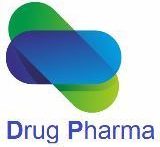Vitamin A foods: what to eat

You might have heard that vitamin A, also known as retinol, can’t be produced by the body. This means you need to eat a balanced diet that includes plenty of vitamin A-rich foods to get enough of this essential vitamin.
Why is vitamin A important?
Vitamin A helps the bodywork properly in many ways, including:
- helping with vision, especially in dim light
- protecting against illness and infection by supporting the immune system
- keeping the skin and other linings of the body, such as inside the nose, healthy
- Which foods are high in vitamin A?
- Vitamin A is measured in micrograms (µg) of retinol equivalents (RE). The recommended daily allowance (RDA) of vitamin A for adults aged 19 to 64 is 700 µg a day for men and 600 µg for women – these are tiny amounts.
To make sure you’re getting the RDA of vitamin A, include a range of these vitamin A food sources in your diet:
- liver and liver products: 100g of liver pâté contains around 7,322 µg of vitamin A, which is more than 1,000% of an adult’s RDA. Eating liver more than once a week can put you at risk of having too much vitamin A
- cheese: 100g of cheddar cheese contains 388 µg of vitamin A, just over half the RDA
- eggs: a serving of 2 boiled eggs weighing about 100g in total contains around 120 µg of vitamin A in total, which is around 20% of the RDA
- oily fish: 100g of grilled mackerel, for example, contains around 60 µg of vitamin A, which is about 10% of the RDA
- milk: 100ml of milk contains around 38 µg of vitamin A, which is about 5% of the RDA
Vitamin A is also available through eating foods rich in beta-carotene, which the body turns into retinol. Some of the best sources of beta-carotene are:
- yellow and red vegetables, such as carrots, red peppers, and sweet potatoes
- green leafy vegetables, like spinach
- yellow fruits, including apricots, mango, and papaya
Getting too much vitamin A
Some research suggests that getting more than the RDA of vitamin A, especially over several years, may weaken your bones as you age. This is especially important for older people, who may be at risk of osteoporosis, to be aware of.
Many multivitamins, such as fish liver oil, contain vitamin A. You should think about your total vitamin A intake, from both food and supplements, when working out your vitamin A consumption, which should not be more than 1,500 µg a day.
If you’re pregnant or trying to get pregnant, avoid liver and liver products – these foods are very high in vitamin A, which can be harmful to an unborn baby.
What happens if I don’t get enough vitamin A?
Some health conditions may affect your ability to absorb vitamin A properly, such as:
- coeliac disease
- Crohn’s disease
- giardiasis (an infection of the bowel)
- cystic fibrosis
- liver cirrhosis
- diseases of the pancreas
- obstruction of bile into the gut
- Symptoms of vitamin A deficiency are linked with being less able to fight infections and vision problems, especially night vision. Vitamin A deficiency is the leading cause of preventable blindness in children worldwide.
Other symptoms of a lack of vitamin A include:
- fatigue
- dry hair and skin
- itching
- infections
- delayed growth and bone development in young people
- Vitamin A deficiency may also increase infertility and miscarriage risk.
When to see a doctor?
If you think you might be lacking vitamin A or are thinking about vitamin A supplements, speak to your doctor or health practitioner. If you’re pregnant or trying to conceive, you should avoid vitamin A supplements – speak to your doctor or midwife for more information.
Key points
- vitamin A is important for healthy vision, skin, and immunity
- liver, cheese, eggs, oily fish, and milk are good vitamin A food sources
- it’s important not to consume too much vitamin A, especially if pregnant
- some health conditions including coeliac disease and Crohn’s disease can cause vitamin A deficiency
- if you think you’re deficient in vitamin A, speak to your doctor before taking a supplement
Author: Helen Prentice
5 references
Vitamins and minerals [Internet]. Bupa.co.uk. [cited 3 January 2021]. Available here
https://www.bupa.co.uk/health-information/nutrition-diet/vitamins-and-minerals
Supplements who needs them? [Internet]. NHS Choices. 2011. nhs.co.uk. [cited 3 January 2021]. Available here
https://www.nhs.uk/news/2011/05May/Documents/BtH_supplements.pdf
Vitamin A [Internet]. NHS. 2020. nhs.co.uk. [cited 3 January 2021]. Available here
https://www.nhs.uk/conditions/vitamins-and-minerals/vitamin-a/
Explore Food Calculator [Internet]. British Nutrition Foundation 2021. foodafactoflife.org.uk. [cited 3 January 2021]. Available here
https://explorefood.foodafactoflife.org.uk/Calculator/Recipe
Vitamin A deficiency [Internet]. patient.info. 2018. [cited 3 January 2021]. Available here
https://patient.info/healthy-living/vitamin-a-deficiency-leaflet
